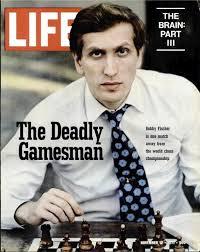
Yes, you can become a chess master, here's how: part 7
Today I want to discuss instinct in chess, at least how I apply it. This example will endeavor to show how I applied it in a given postion back in 1987. I'll let you in on a little secret. I rarely calculate continuations in positions beyond keeping my pieces safe. An exception is when I am on the attack, then I start the evaluation process much deeper. I almost always have a first impression of what move I need to play and am often correct in my judgement. This habit is one reason I don't play blitz and bullet chess well, and can't get a comparable rating in those categories to my true playing strength. Quick moves often lead to tactical refutations which bring the house down.
Have a look at the diagram. The game is objectively even, but Black has a little initiative as my a2 pawn is menaced, the Rook on h1 is out of play, he has a pair of Rooks which may menace my 2nd rank soon, and my King is exposed.
I saw that if I played 23. a3 then ...Bxd4+ 24. Rxd4+ Re2+ and Black has a lot of activity.
I still remember what I was thinking when I chose my move, 23. Rhe1 (I have an uncanny memory, I can remember exactly what I was thinking and why I chose some of my moves in most games I played since 1972): "If Black captures the Pawn on a2, that's one move and it sends the Bishop out of play. It will take one more move to get it back into the game. A pawn is worth 3 tempos. Here I only get 2 tempos for it, but my piece activity should regain the pawn soon enough. Therefore playing 23. Rhe1 will coordinate my army quite well if he grabs my pawn, and I should be able to at least hold this position".
This is exactly what happened, and the game soon ended in a draw, although I did miss some winning chances in an innocent looking endgame. More on that next time. Here are the next few moves:
No matter what Black does, White is going to win either the pawn on a7 or b7. I did not foresee this position when I played 23. Rhe1, I knew it, or something similar was there for me to find. When I was first playing tournament chess, I grabbed pawns when I could and hung onto them for dear life. I wouldn't give up pawns if I could help it. My logic was a pawn difference was a decisive advantage game once the endgame hit. I soon found out, the problem was getting to that ending!
So, the lesson here is piece activity is often your best choice. Focus on making that your instinctual choice and let the pawns fall where they may!
